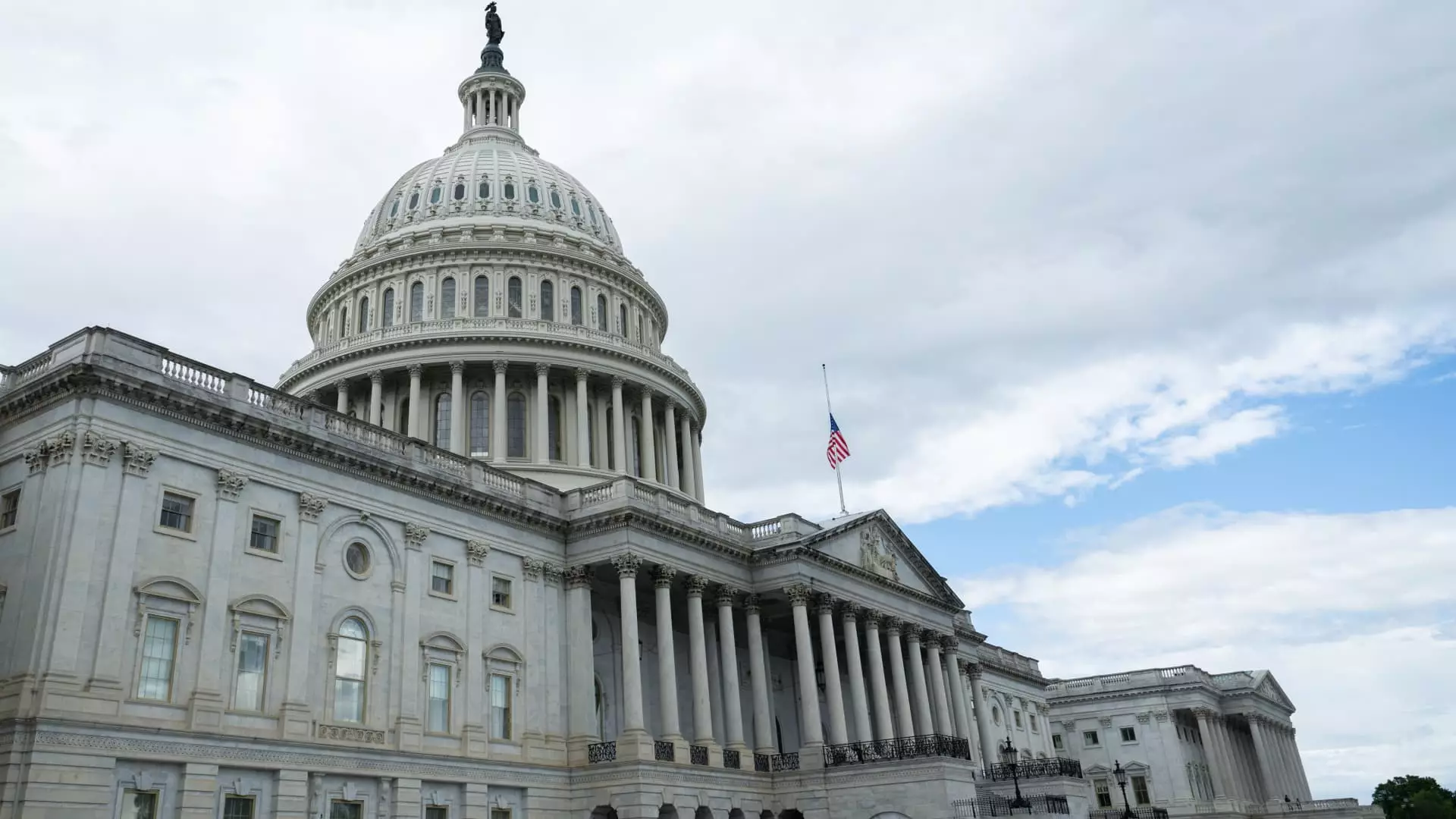In the chaotic arena of U.S. politics, the recent legislative moves by House Republicans have ignited serious financial concerns that cannot be ignored. The sprawling tax cut package, championed as a boon for the economy, is projected to increase national debt by a staggering $3.1 trillion over the next decade—an alarming figure that far outstrips the anticipated benefits. For anyone who believes in fiscal responsibility, these developments are an unadulterated nightmare, placing excessive financial burdens on future generations while only superficially alleviating concerns for current taxpayers.
Questionable Math and Misleading Claims
While proponents of the bill argue that tax cuts will stimulate economic growth sufficient to offset the debt increase, reputable organizations like the Penn Wharton Budget Model estimate this figure to be as high as $3.8 trillion when taking into account interest and economic repercussions. Such optimistic views are a form of ‘fantasy math,’ as aptly put by Rep. Thomas Massie. Claims that these tax cuts will lead to substantial revenue through tariffs or trickle-down benefits are shaky at best and disingenuous at worst. They ignore a fundamental reality: consumers and investors, not tariff policies, dictate genuine economic growth.
Moreover, the framing of the tax bill as a “One Big Beautiful Bill” sounds more like political rhetoric than responsible governance. These Republicans would rather conduct a show of fiscal benevolence than actual conservative fiscal policies. Department cuts to safety-net programs such as Medicaid and food assistance disproportionately affect the vulnerable, making the bill less about economic growth and more about prioritizing tax benefits for the wealthy.
The Unseen Costs: Consumer Impact
Most Americans may feel insulated from the complexities of national debt, believing it to be an abstraction disconnected from their daily lives. Yet, as economists such as Mark Zandi have pointed out, this is a dangerous misconception. Higher national debt will bring higher interest rates, which will directly affect both consumer financing and housing affordability. If the yield on the 10-year Treasury bond rises due to increased perceived risks associated with government debt, the average American will face steeper mortgage rates and loan costs.
Imagine a potential homebuyer grappling with an interest rate increase from 7% to 7.6%—a seemingly small change that can have a disproportionately large impact on mortgage payments and, by extension, the ability to purchase a home. The implications of these trends extend beyond individual wallets; they enhance systemic risks that can destabilize the housing market and wider economy.
The Chain Reaction of Investor Anxiety
As federal debt continues to climb, investors are likely to demand higher returns to mitigate newfound risks. All too soon, this debt cycle can set off a domino effect that impacts everything from consumer credit to investment portfolios. Recent trends reveal that long-term Treasury bonds have already been showing increased volatility, which is alarming given that these bonds typically serve as a safe haven in times of uncertainty.
Moreover, the unprecedented levels of national debt have led to shifts in investor sentiment. The dropping credit ratings, as issued by agencies like Moody’s, are not merely academic; they reflect tangible losses in wealth for those holding Treasury bonds. When yields rise, existing bondholders face a depreciating asset—one of the many hidden costs of irresponsible tax policy. In this sense, the fiscal irresponsibility of the GOP serves to erode not just governmental credibility but also consumer and investor confidence alike.
Political Consequences in a Polarized Landscape
In a time when citizens are becoming increasingly disillusioned with traditional party lines, the need for sound fiscal policies is more pressing than ever. The House GOP’s push for extreme tax cuts risks alienating not just economic moderates but also those who generally align with conservative principles. Instead of putting taxpayers first, the current legislation panders to a wealthy minority under the guise of stimulating growth.
Shifting the paradigm from extensive tax cuts supported by dubious math to more pragmatic, evidence-based policies that prioritize long-term stability may prove vital. The Republicans would do well to align themselves with their core values—fiscal responsibility, economic freedom, and a genuine interest in the well-being of their constituents. The alternative is a path littered with economic ruin that will resonate for generations to come.
The stark reality is that every additional dollar of debt serves as a heavier chain anchoring the American economy, and it is the average citizen who will ultimately feel the pull. With historical growth projections looking bleak, ignoring these ominous warnings may lead to a future far less rosy than the rhetoric suggests. Instead of celebrating a lofty tax cut bill, Republicans must reckon with the systematic implications their legislation carries for both the economy and the voter base. The stakes couldn’t be higher, and the choice is clear: pursue responsible governance or risk fiscal disaster.

